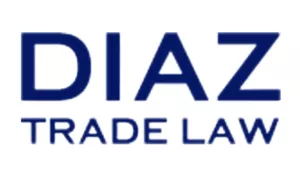On March 6, 2024, the Department of Commerce, Department of the Treasury, and Department of Justice issued a tri-seal compliance note titled: "Obligations of foreign-based persons to comply with U.S. sanctions and export control laws."
The note:
- Highlights the applicability of U.S. sanctions and export control laws to persons and entities located abroad;
- Outlines the enforcement mechanisms that are available for the U.S. government to hold non-U.S. persons accountable for violations of such laws; and
- Provides an overview of compliance considerations for non-U.S. companies and compliance measures to help mitigate their risk
Applicability of U.S. Sanctions and Export Control Laws to Foreign-Based Persons
The U.S. Department of the Treasury's Office of Foreign Assets Control (OFAC) administers and enforces economic and trade sanctions, primarily against foreign jurisdictions but also against individuals and entities such as traffickers and terrorists.
The following persons/entities must comply with OFAC regulations:
- U.S. citizens and permanent resident aliens
- All persons within the United States
- All U.S.-incorporated entities and their foreign branches
In certain sanctions programs, foreign entities owned or controlled by U.S. persons also must comply with applicable restrictions – such as engaging in a transaction with the government of Iran. Certain sanctions programs also require foreign persons in possession of U.S.-origin goods to comply.
Non-U.S. persons are also subject to certain OFAC prohibitions. For example, non-U.S. persons are prohibited from causing or conspiring to cause U.S. persons to wittingly or unwittingly violate U.S. sanctions, as well as engaging in conduct that evades U.S. sanctions.
Applicability of U.S. Export Control Laws
The compliance note highlights that the Export Administration Regulations (EAR) follow the goods – meaning U.S. export control laws may extend to items subject to the EAR anywhere in the world and to foreign persons who deal with them. Anyone involved in the movement of items subject to the EAR must adhere to U.S. export control laws.
Transshipment
The reach of U.S. export control laws means that parties to an export transaction cannot bypass the EAR by shipping items through a third country. Similarly, foreign parties to an export transaction cannot bypass EAR requirements because the item is located outside the United States.
U.S.-Origin Components
The EAR may also apply to foreign companies that manufacture items containing U.S.-origin components. The factor that determines EAR applicability is the value of the components. Most of the time, a non U.S.-made item is subject to the EAR if the value of the U.S.-origin controlled content exceeds 25% of the value of the finished product. For certain countries, the threshold is lower (Cuba, Iran, North Korea, and Syria – 10%).
Foreign Produced Products that contain U.S.-Controlled Technology
Under the EAR, certain foreign-produced items located outside of the United States that are produced using certain U.S.-controlled technology, software, or production equipment are subject to the EAR when exported from abroad, reexported, or transferred in-country to certain countries or parties on the Entity List.
This means that even if the items never enter the U.S., they may still be subject to U.S. export control jurisdiction under certain conditions.
Examples include:
- License requirement for Huawei and its subsidiaries on the Entity List on items that are the direct product of certain U.S.-origin software or technology.
- Certain Chinese entities associated with advanced semiconductors.
- Controls on certain defense-related entities and items in Russia, Belarus, and Iran.
Enforcement Against Foreign Persons and Entities
The note illustrates the authority of the Bureau of Industry and Security (BIS), OFAC, and the Department of Justice by providing past examples of enforcement actions.
BIS
- June 9, 2023 – BIS issued a Temporary Denial Order (TDO) suspending the export privileges of companies in the Netherlands and Greece for acting as a procurement network for Russian intelligence services.
- April 20, 2023 – BIS announced a $300 million penalty against a Singapore company for shipping millions of hard disk drives to Huawei without a license.
OFAC
- In April 2022, an international freight forwarding and logistics company paid over $6M to settle civil liability for received payments through the U.S. financial system in connection with shipments to Korea, Iran, and Syria.
- July 2021 – a UAE-based company settled with OFAC for $415,000 for exporting storage tank cleaning units from the U.S. to Iran by falsely listing a Dubai-based company as the end-user.
Department of Justice
- October 2022 – DOJ indicted three Latvian nationals, one Ukrainian national, one Latvian company, and one Estonian company with violating U.S. export laws by trying to smuggle from the United States to Russia a dual-use, high-precision computer-controlled grinding machine.
- December 2023 – DOJ indicted one Iran-based person and one China-based person for conspiring to illegally purchase and export from the United States to Iran dual-use microelectronics commonly used in UAV production.
Compliance Considerations for Foreign-Based Persons
The note ends by advising foreign-based companies and individuals to take seriously the impacts of U.S. sanctions and export control laws on their business and operations. The note provides a list of compliance considerations including screening protocols, integrating know-your-customer practices, and ensuring that affiliates are trained on U.S. export control requirements.
Diaz Trade Law Can Assist with EAR Compliance
While having an export compliance plan is not a guarantee that an export violation will not occur, a robust export compliance program can minimize the risk of non-compliance. Diaz Trade Law can help you develop an effective export compliance plan, export compliance training, transaction vetting, and more.
Reach out to us at info@diaztradelaw.com or call us at 305-456-3830.
Want more information on EAR compliance? Check out our relevant blog posts and on-demand webinars:
- Introduction to Export Controls
- The Importance of Regular Export Compliance Training for your Business
- Expanded Export Control Obligations when Exporting to China
The content of this article is intended to provide a general guide to the subject matter. Specialist advice should be sought about your specific circumstances.

